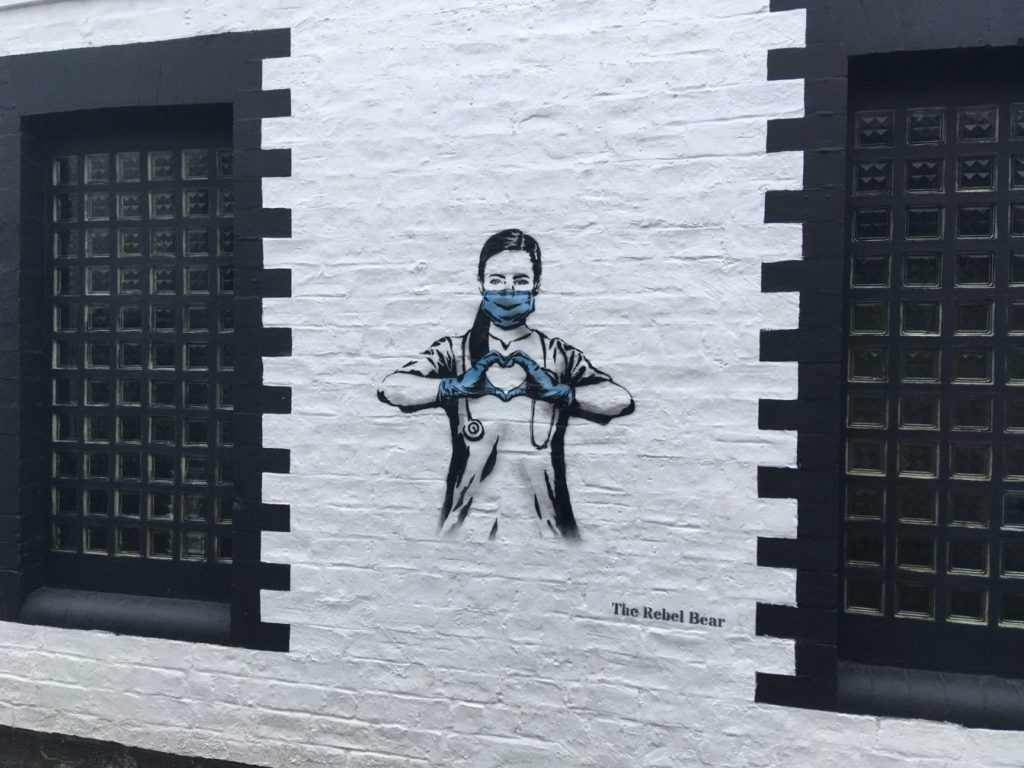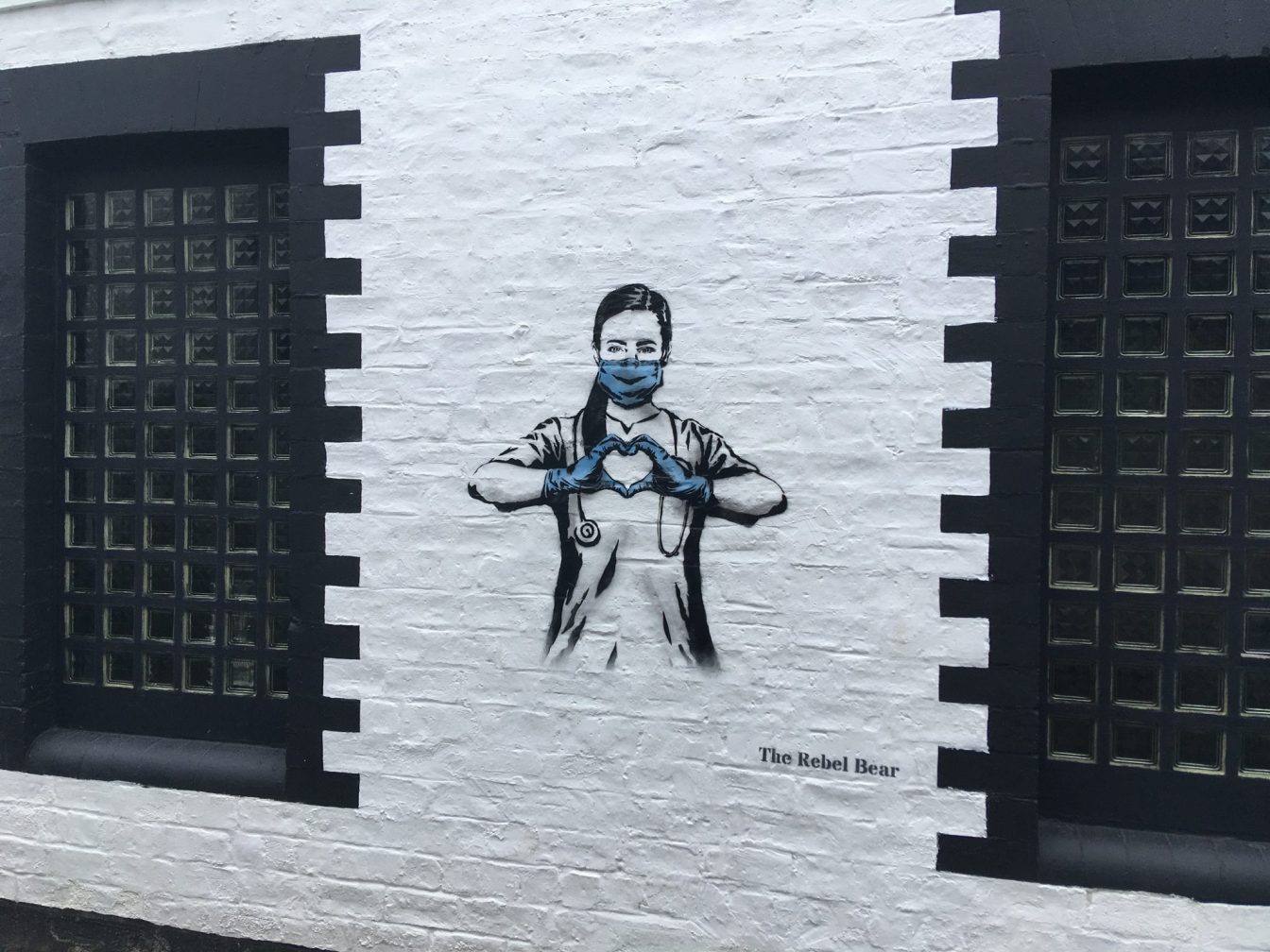
Owen Sheers’ poem-play To Provide All People was originally written in commemoration of the 70th anniversary of the NHS. It was premiered in 2018 in a star-studded BBC film, directed by Pip Broughton. Back then it had important things to say about our much-cherished, much-abused health service, but the Covid-19 crisis has surely intensified its relevance. As directed by George Mann, this show has been filmed and edited by the cast themselves, blurring any distinction between performance and production. These young BOVTS actors are technicians, too. When the current crisis is over, in what ways will these innovations permeate through to conventional ‘live’ theatre?
Given that this is a work from the writer of the exceptionally powerful Pink Mist, it is no surprise that To Provide All People offers an object lesson in how to tease out the poetry that lies within demotic, everyday speech. When in celebratory mode the language is joyously lyrical; when confronting grim reality, it can be unflinchingly direct. Structured around the themes of birth, life and death, an account of the history of the NHS is interwoven with personal stories from patients, their relatives, and health practitioners. The latter’s roles range from a lowly hospital porter to an impressively professorial consultant surgeon, but there is nothing hierarchical in the way Sheers presents these characters. That hospital porter is given some of the most rhapsodic lines in the play, as he asks us to consider the concept ‘care’. Way back in prehistory, he muses, ‘someone, somewhere must have been the first to offer comfort beyond the tribe.’ Daniel Radze portrays Hywel the porter as a young Welshman passionately committed to all that the NHS represents, enthusiastically reminding us that it was only through Aneuran Bevan’s single-minded determination that the NHS was not stillborn. It now seems astonishing that doctors were once appalled at the idea that hospitals should be nationalised. Now they rail against privatisation.
Very properly, many of the characters we meet in the ‘birth’ section of To Provide All People are Welsh. The NHS owes its existence to ideas about health care that were first explored and developed in and around the coal mines of South Wales. Bevan famously said he was going to ‘Tredegar-ise’ the UK, and he did just that.
Among the personal stories, a particularly moving one is that of Eluned and Gwyn, who have a desperately ill baby daughter. Esmée Cook and Mark Milligan touchingly convey this young couples’ hopes and fears as they put the care of their frail child into the hands of doctors and nurses. Their baby lives, but To Provide All People doesn’t shirk away from the hard fact that the NHS cares for the dying, too. Olivia Edwards gives a deeply touching performance as Alison, a nurse who volunteers to be responsible for the palliative care of child who is taken home to die. Initially nervous, she comes to find something deeply satisfying, even beautiful, in taking on that solemn responsibility.
As with many of the actors in this production, Olivia Edwards plays a number of roles. In addition to Alison, she is also Eva, a bright-eyed nine-year old with a genetic disorder; and she is also a grey-haired septuagenarian from Swansea, who was the very first child to be born under the care of the NHS. Very fittingly, that child was christened ‘Aneira’.
We see Eva on a garden swing, and Aneira is peeling potatoes. Many of the other characters are also presented in a domestic context: Keira Lester’s West Indian nurse is doing her ironing, while Alice Moore portrays a West Country midwife busily preparing strawberries. As an A&E nurse getting ready for work, Esmée Cook demonstrates an impressive ability to deliver her lines while cleaning her teeth. As played by Mark Milligan, we see anaesthetist Bill in his bath, surely putting the safety of Milligan’s mobile phone in peril.
The BOVTS had to abandon their original plan to present To Provide All People as a stage play, with scenes in a hospital setting. Presenting the characters as if in their own homes is a clever alternative. However, some characters are seen engaging in more vigorous, outdoor activities. At times, this has involved some distractingly wobbly camerawork, but that is a small price to pay for the welcome injection of movement and energy that such sequences provide.
In a very inventive sequence, Tommy Sim’aan portrays a consultant surgeon concerned that Brexit will bring about a diminishing of the NHS that could prove fatal. His fears are depicted in an animation, with the NHS of the near future depicted as a tree that withers and eventually dies. To Provide All People shows that, if we are fortunate, our own deaths can be faced with quiet acceptance, but we cannot face the possible death of the NHS with such equanimity. In a striking image, Sheers suggests that there is a real danger that the term ‘NHS’ is becoming a kind of Kitemark symbol, distracting us from the reality of ever-increasing privatisation.
Once again, the BOVTS has found a way to triumphantly overcome the difficulties created by our Covid-dominated circumstances. Thirteen actors, playing over thirty roles, all filmed on mobile phones; it shouldn’t work, but it does. By being ‘together, in isolation’, they have created something very special. Bravo! ★★★★☆ Mike Whitton 26th June 2020
Click here to return to the main page and read the other reviews


